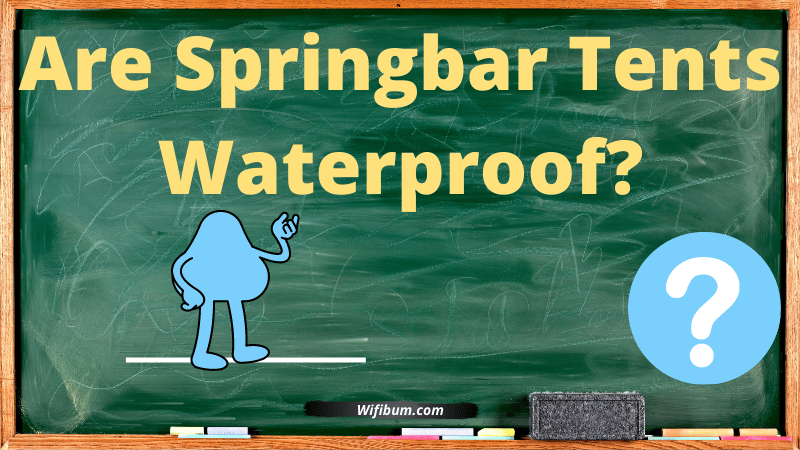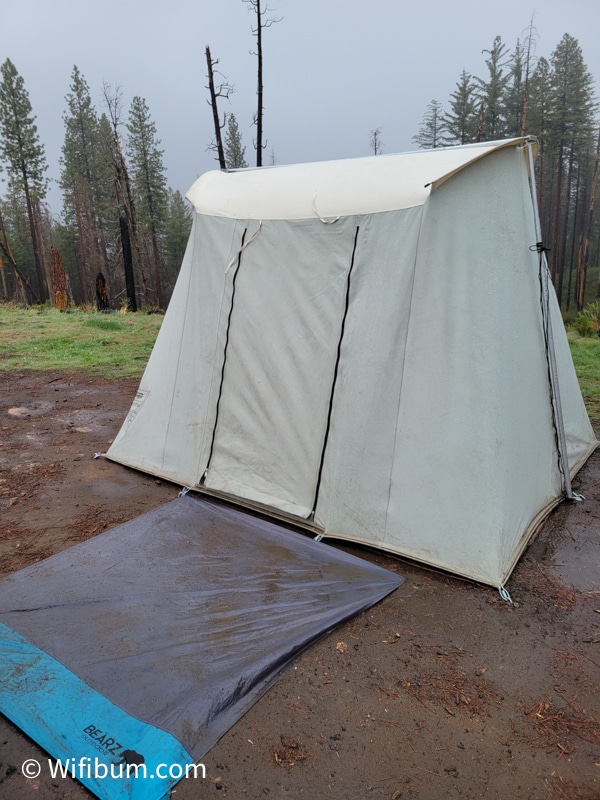Springbar canvas tents are gaining in popularity as outdoorsy people get re-introduced a 50+-year-old company.
In a world of synthetic materials, cotton canvas has been here for decades on decades. Canvas tents are known for their durability and ability to handle inclement weather.
So, you may be wondering, are Springbar tents actually waterproof?

Are Springbar Tents Waterproof?
Springbar tents are waterproof when properly treated and maintained. Cotton canvas is waterproof because it swells when it gets wet and seals the weave. This prevents water from passing into the inside of the tent.
My Springbar canvas tent has been through days of rain, snow, and high winds. It’s one of the best canvas tents.
Here’s an example of how the water beads on the tent and runs off the sides.
Springbar is one of my favorite waterproof tents.
Do You Need a Rainfly for a Canvas Tent?
You do not need a rainfly for a canvas tent. They are naturally waterproof after seasoning it on the first use.
The only thing I did to treat or “season” it was get it wet and let it dry. It’s really as simple as that.
Every few years I will add some waterproofing spray, but so far I have not had any concerns about the waterproofing.

Adding a rainfly is possible on certain models of Springbar tents. Sometimes this is useful because it can give you some more dry outdoor space.
It can also keep your tent dryer and quicken the time to dry when you’re packing up. It’s much easier to have to just dry a rainfly at home than the entire tent.
Make Sure To Fully Dry Your Tent
Springbar canvas tents are waterproof, but they need to dry before storage.
Canvas is notorious for being conducive to mildew if you store it wet.
It’s okay to pack it wet, but make sure you unpack it as soon as possible and let it dry.
Summary
Springbar canvas tents are waterproof. It’s a best practice to season your tent by getting it wet and letting it dry before taking it into conditions where it can rain.
It’s really as simple as that!
Related: Reviews of the best canvas tents.
